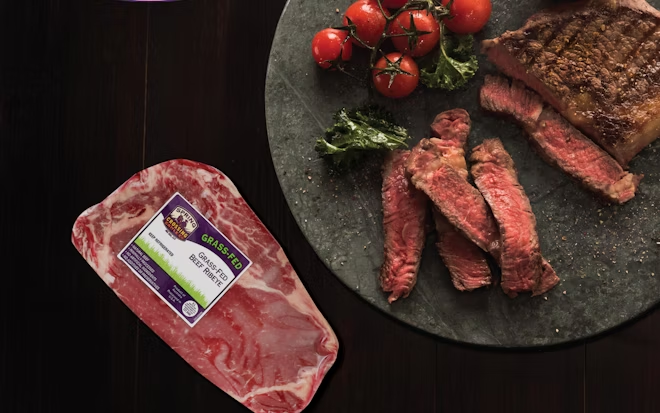Saturday, 28 February 2026
JBS targets Vietnam as strategic growth hub in Asia’s protein boom
With Vietnam’s growing appetite for premium protein, JBS’s entry could be the start of broader regional expansion JBS, the world’s largest protein company, has made a decisive move into Southeast…

With Vietnam’s growing appetite for premium protein, JBS’s entry could be the start of broader regional expansion
JBS, the world’s largest protein company, has made a decisive move into Southeast Asia by securing export approval from Vietnam for two of its beef-processing plants, Mozarlândia and Goiânia and dispatching its first shipment of Brazilian beef to the country. While the ceremonial send-off in Rio de Janeiro was marked by high-level participation from both nations, the real significance of this development lies in what it signals for the future of regional protein trade and food security.
Vietnam, a country with over 101 million people and a fast-growing economy (7.6 per cent GDP growth in Q2 2025), has emerged as one of Asia’s most promising destinations for animal protein. In 2024 alone, it imported nearly 300,000 tonnes of beef and buffalo meat. As urbanisation accelerates and its young middle class expands, Vietnamese consumers are demanding higher-quality, convenient, and value-added protein options, a demand JBS is well-positioned to meet.
A strategic foothold
This first shipment of 27 tonnes of beef, processed at JBS’s Friboi plant in Mozarlândia, is symbolic of the company’s long-term strategy to anchor itself more firmly in Asia-Pacific. While JBS has had a presence in Vietnam since 2014 through its leather operation in Dong Nai, this marks its entry into the core protein segment in one of the region’s fastest-growing consumer markets.
The company is not stopping at exports. JBS has announced a $100 million investment in two new plants in Vietnam for producing beef, pork, and poultry facilities that will serve both the domestic and neighbouring markets. With this move, JBS is positioning itself as a local player, not just an importer, creating around 500 direct jobs and helping strengthen Vietnam’s food supply chain.
This vertical integration not only allows JBS to respond faster to local demand but also builds resilience into its regional operations, especially as countries seek to bolster food security amid global uncertainties.
Geopolitical and economic implications
The approval of JBS’s plants by Vietnamese authorities and the bilateral celebration involving Prime Minister Phạm Minh Chính and Brazil’s Agriculture Minister Carlos Fávaro reflect deeper diplomatic and trade alignment. For Brazil, it offers a way to diversify export markets beyond China and traditional partners, especially as global food supply chains adapt to post-pandemic dynamics and geopolitical fragmentation.
As JBS Executive Director of Corporate Affairs Marcela Rocha noted during the launch, Brazil’s beef industry isn’t just an economic engine; it’s an ecosystem involving farmers, processors, suppliers, and logistics providers. The Vietnam opening adds another major market for this network and strengthens Brazil’s position as a global food powerhouse.
Consumer-focused innovation
JBS’s strategy also includes adapting products to local tastes and lifestyles. The company is developing a portfolio in Vietnam that emphasises portioned cuts, convenience formats, and modern packaging, key factors for success in urban retail environments. This tailored approach aligns with consumer trends and strengthens brand loyalty in a competitive market.
Outlook: Vietnam as a launchpad for Asia
With Vietnam’s growing appetite for premium protein, JBS’s entry could be the start of broader regional expansion. By building production capacity in Vietnam, JBS can potentially use the country as a springboard to serve neighbouring Southeast Asian markets like Thailand, Malaysia, and the Philippines, where similar consumer shifts are underway.
In essence, JBS’s move into Vietnam isn’t just about tapping into one market; it’s about embedding itself deeper into the economic fabric of Asia’s protein future. The combination of local production, targeted innovation, and export strength makes JBS a serious contender in the race to feed Asia’s next billion.
Shraddha Warde
shraddha.warde@mmactiv.com
Technology
Ingredion Thailand Achieves 100% Sustainably Sourced Cassava
Feb 27, 2026 | Company News
Deakin University and Bellarine Foods Partner to Develop Sustainable Marine-Derived Proteins
Feb 26, 2026 | Australia
Royal Unveils Refreshed Jute Bag Design for 20lb Authentic Basmati
Feb 25, 2026 | Company News
Food Testing
Australian Medical Bodies Push for Compulsory Health Star Labelling
Feb 24, 2026 | Australia
Tim Hortons Singapore Secures Majlis Ugama Islam Singapura Halal Certification Ahead of Ramadan
Feb 23, 2026 | Company News
More Popular
Fagron Acquires Pharmavit Europe for €68Mn to Expand Nutraceutical Portfolio
Feb 27, 2026 | Company News
Arla Foods Invests EUR 300Mn in New Cheese Dairy in Sweden
Feb 27, 2026 | Company News
Beyond Meat Broadens Portfolio Beyond Protein with Sparkling Plant-Based Drink Line
Feb 27, 2026 | Beverages






